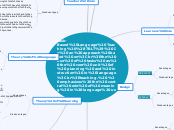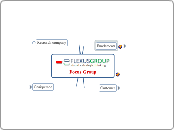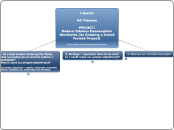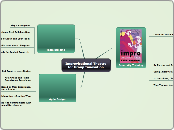Task-Based Language Teaching (TBLT) Is an approach based on
the use of tasks as the core unit of planning and instruction in language
teaching. emphasizes the central role of meaning in language use
Procedure
It may be difficult how to assess the performance of each student since students are working as a team.
Pupils can get some support from the teacher and partners.
It provides pupils different stages to develop the tasks gradually with language tools and resources making it easier and providing feedback to be conscious about the results.
Theory of learning
The success of tasks may rely on the willingness of the students to work collaboratively and if they are lacking of this responsibility and motivation it'd be a problem.
Facilitate the use and learning of particular aspects of language.
Involve partnership and collaboration
Tasks foster processes of negotiation, modification, rephrasing, and experimentation that are at the heart of second language learning.
Theory of language
If students don't have a good level of speaking they may not feel confident, impatient with other partners or wanted to speak their mother tongue.
Speaking to communicate with others is essential to complete the tasks.
It's not linked to a single model of language
It may help use students the target language actively and meaningfully.
Teachers role
Teacher should focus pupils on useful resources to use while doing the task not just a grammar explanation as a pre-task.
Instructions should be clear and activities motivating or students will get frustrated or bored.
The teacher doesn't have the control of the development of the tasks.
The teacher should spend a lot of time designing the tasks
The teacher is not authoritarian.
The teacher monitors the activity to check the procedures.
The teacher guides students how to complete the tasks.
Types of learning and teaching activities
It may be difficult for teachers to select the tasks.
The use of certain type of task should be justified according to the type of learning of the students and this could be demanding for teachers and also not be clear for the teacher nor the students.
Tasks also might focus students on classroom activities
Activities may lead to encourage students to solve problems or face real-world situations and team-working skills.
There are many different types of activities to choose from to guide students to learn.
Design
Syllabus
The specific content and skills that might be acquired through the tasks is not clear.
Selection of tasks, should be based on a careful analysis of the real-world needs of learners
Objectives
There is not much literature about how to set objectives in TBLT.
Goals in TBLT are ideally to be determined by the specific
needs of particular learners.
Learners role
Some students may not work to rely on those who do.
Pupils may get stuck if they are not able to solve the lack of linguistic knowledge.
Students might not seen the difference in grammar structures when speaking.
Some students may not be comfortable working as a team.
Learners can create and interpret messages for
which they lack full linguistic resources and prior experience.
Students notice how language is used in communication.
To work in pairs and groups, may reinforce friendship and team-working skills.
Materials
Realia
It may require a more ingenuity and preparation to be presented and use it in class.
It could be more interesting and motivated. Also meaningful.
Pedagogic materials
Disadvantages
Books might be boring and lack of real-world language.
Advantages
Classroom books have activities already designed to be used in different ways, which save time to teachers.









